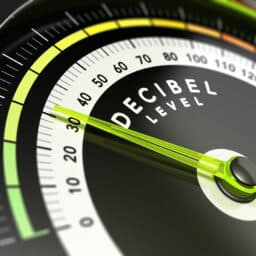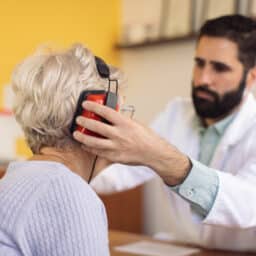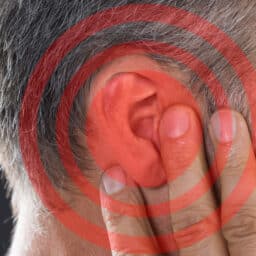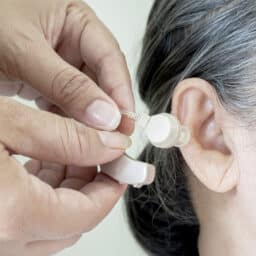How Hearing Aids Will Enhance Your Valentine’s Day

There are numerous personal benefits to hearing aids: improved mental, physical, emotional and cognitive health, increased independence and increased confidence come to mind. Another major benefit of hearing aids is the positive impact they will have on your relationships. Have the best Valentine’s Day ever with your Valentine with hearing aids. Here’s how. Your Dinner…
Is My Home Too Loud?

Loud noise exposure is a common cause of hearing loss, but it is not limited to single, deafening sounds, such as a gunshot or a jet plane taking off. In fact, noises that are elevated in volume but not excessively loud can have an erosion-like effect on our hearing, chipping away bit by bit over…
Why Winter Is the Perfect Time for a Hearing Test

Winter is about more than just cozy sweaters and cold weather; it’s also the time to gather with our families, reflect on the year behind us and set our intentions for the year to come. Your hearing health is a part of all of this. If you’re due for a regular hearing checkup, now is…
The Importance of Annual Hearing Tests

You probably have annual wellness exams, annual physicals, annual vision tests and annual dental checkups. You may not prioritize a yearly hearing test because you don’t think you have symptoms of hearing loss, or because you don’t believe you have the time. However, getting your hearing tested regularly is a vital part of healthy aging…
Are There Different Kinds of Tinnitus?

If you regularly experience, or have experienced before, a phantom noise in your ear, that is tinnitus. It’s regularly described as a “ringing in the ear,” but it can also sound like a humming, buzzing, whooshing or clicking sound. Tinnitus is quite common, affecting an estimated 10% of the American population each year. Yet, despite…
How Working Out Can Affect Your Hearing

It’s well-known that exercise and physical activity benefit many aspects of your health, from physical to emotional. Because it affects almost every aspect of your health, it’s not surprising that it impacts your hearing health, as well. Does Working Out Improve Hearing Health? A 2021 study analyzing adults aged 60-69 found that hearing loss was…
How To Talk to the Teacher About Your Child’s Hearing Loss

Approximately 34 million children experience hearing loss; if your child is one of them, you know the back-to-school season has extra complications. One thing you should do before the start of this school year is have a discussion or write a letter to your student’s teachers, nurses, coaches and other school faculty members to educate…
How Grime and Wear Impact Your Hearing Aids

Keeping your hearing aids clean isn’t optional if you want the best performance. If you’re a new hearing aid user, you might not realize how much the environment can impact your new hearing device. First, let’s explore some of the impacts of wear and tear on performance. How Does Wear Impact Your Hearing Aid? The…
Tips for Navigating Airport Security With Hearing Aids

Nearly 28.8 million Americans could benefit from using hearing aids. New hearing aid users may have several questions about daily activities with hearing aids. When traveling, they may be curious about how to navigate security with them. The good news is that hearing aids are rarely a cause for concern at airport security, and with…
Are My Sunglasses Interfering with My Hearing Aids?

If you wear both hearing aids and sunglasses, you may wonder if your sunglasses will interfere with your hearing aids. Nearly 28.8 million Americans could benefit from wearing hearing aids, but many people don’t take advantage of their benefits for various reasons. Hearing aids and sunglasses occupy similar real estate around your ears and can…